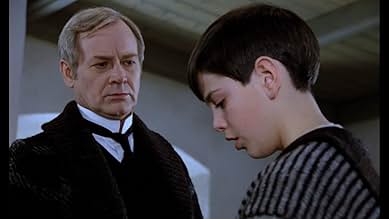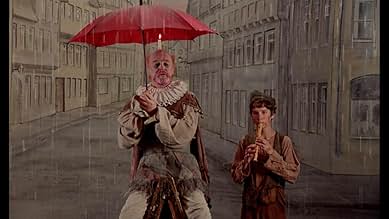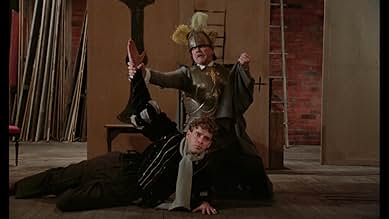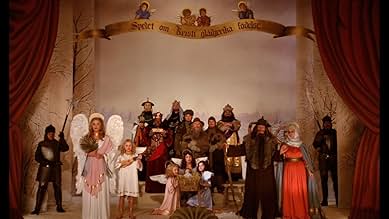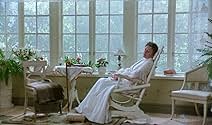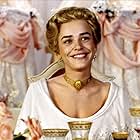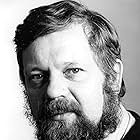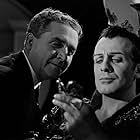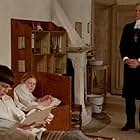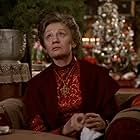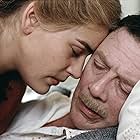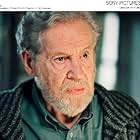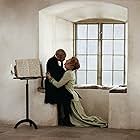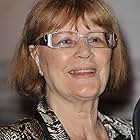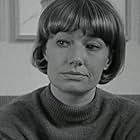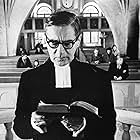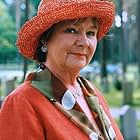CALIFICACIÓN DE IMDb
9.0/10
4.9 k
TU CALIFICACIÓN
Dos niños suecos viven las alegrías y las tragedias de su familia, los Ekdahls.Dos niños suecos viven las alegrías y las tragedias de su familia, los Ekdahls.Dos niños suecos viven las alegrías y las tragedias de su familia, los Ekdahls.
Explorar episodios
Argumento
¿Sabías que…?
- Versiones alternativasConceived, shot and edited as a television miniseries from the start, it was then re-edited into the shorter feature film Fanny y Alexander (1982), which was released before the miniseries, but which writer/director Ingmar Bergman found very inferior.
- ConexionesEdited from Fanny y Alexander (1982)
Opinión destacada
Suffice to say Fanny and Alexander, the last film that Bergman *intended* to direct for theaters (he had two others that were released on TV that also made it to US theaters, besides the point), is the stuff that most artists, writers and filmmakers wish they can accomplish in one fell swoop. Here is a work that encapsulates the obsessions, desires, fears, passions, anger, anguish, hatred, warmth, cold, humor, and probing questions in Bergman's life work- some 50 movies including scripts made by other directors- while also working as very possibly his best film, his richest, the one that says everything there needs to be said about being a kid, having a warm family, and being (rightfully) on your guard about men of the cloth.
It's also, as I sort of realized watching a wonderful new (digital?) print of the UNCUT 5 hour version at the IFC center, something that might have some comparisons with Pan's Labyrinth: this is a story of a child who has an imagination all his own, but also the story of what happens to him and his sister after the death of their father.
After losing the strongest father-figure force that she knew, Emilie Ekdahl remaries to a figure who seems to have an equally strong presence, Bishop Vergerus, who subsequently imposes that she and the children take no posessions and live with him and his family in a cold, medieval home out of the 15th century. Like Captain Vidal, Bishop Vergerus believes in freedom, and subsequently free will, but also believes in swift punishment, "strong, harsh love" for his wife and new step-kids, and the only retaliation Alexander has are his 'fantasies', which are all his own but with their own force to them.
Least that's the comparison I can make now, late at night and with so many thoughts and feelings about seeing the film once again. But it's got more than just the story of a boy's world of ghosts (not least of which, in a given Hamlet reference, his late father) and magic via Jewish rabbi Isak, but it's also the perfect telling of two kinds of family life.
The first part of the picture, up until the section with the father's death, is full of lush, vibrant colors, brought out by Nykvist's cinematography, and the vibe is brought out in the Ekdahl family, which is full of warmth and love, lusts, some quarrelling, some emoting from the matriarch Ekdahl. Then when things turn to the Vergerus clan, it's all stark and gray and without any texture, with bars on the windows of the room where the children sleep (which also holds a dark secret). In Vergerus, I might add, the actor Jan Malmsjo creates one of the most terrifying of all cinema characters, the kind of evil that ranks up there with Nurse Ratched, where it's all in the face of 'it's for the good of *you*'.
So, there's religion, there's spirituality, there's the supernatural, there's family, there's amazing, mind-blowing monologues, it's... a sumptuous film to take on a deserted island. It's the only one that goes past five hours I would think could work over and over and over again and still have bits and pieces to stimulate the mind, consciousness. And it's a fine piece of filmmaking to boot, on all fronts.
It's also, as I sort of realized watching a wonderful new (digital?) print of the UNCUT 5 hour version at the IFC center, something that might have some comparisons with Pan's Labyrinth: this is a story of a child who has an imagination all his own, but also the story of what happens to him and his sister after the death of their father.
After losing the strongest father-figure force that she knew, Emilie Ekdahl remaries to a figure who seems to have an equally strong presence, Bishop Vergerus, who subsequently imposes that she and the children take no posessions and live with him and his family in a cold, medieval home out of the 15th century. Like Captain Vidal, Bishop Vergerus believes in freedom, and subsequently free will, but also believes in swift punishment, "strong, harsh love" for his wife and new step-kids, and the only retaliation Alexander has are his 'fantasies', which are all his own but with their own force to them.
Least that's the comparison I can make now, late at night and with so many thoughts and feelings about seeing the film once again. But it's got more than just the story of a boy's world of ghosts (not least of which, in a given Hamlet reference, his late father) and magic via Jewish rabbi Isak, but it's also the perfect telling of two kinds of family life.
The first part of the picture, up until the section with the father's death, is full of lush, vibrant colors, brought out by Nykvist's cinematography, and the vibe is brought out in the Ekdahl family, which is full of warmth and love, lusts, some quarrelling, some emoting from the matriarch Ekdahl. Then when things turn to the Vergerus clan, it's all stark and gray and without any texture, with bars on the windows of the room where the children sleep (which also holds a dark secret). In Vergerus, I might add, the actor Jan Malmsjo creates one of the most terrifying of all cinema characters, the kind of evil that ranks up there with Nurse Ratched, where it's all in the face of 'it's for the good of *you*'.
So, there's religion, there's spirituality, there's the supernatural, there's family, there's amazing, mind-blowing monologues, it's... a sumptuous film to take on a deserted island. It's the only one that goes past five hours I would think could work over and over and over again and still have bits and pieces to stimulate the mind, consciousness. And it's a fine piece of filmmaking to boot, on all fronts.
- Quinoa1984
- 17 mar 2024
- Enlace permanente
Selecciones populares
Inicia sesión para calificar y agrega a la lista de videos para obtener recomendaciones personalizadas
- How many seasons does Fanny and Alexander have?Con tecnología de Alexa
Detalles
- Fecha de lanzamiento
- Países de origen
- Idiomas
- También se conoce como
- Fanny and Alexander
- Locaciones de filmación
- Productoras
- Ver más créditos de la compañía en IMDbPro
Contribuir a esta página
Sugiere una edición o agrega el contenido que falta

Principales brechas de datos
What is the French language plot outline for Fanny y Alexander (1983)?
Responda

